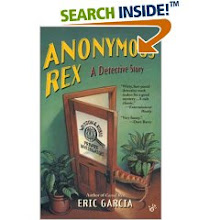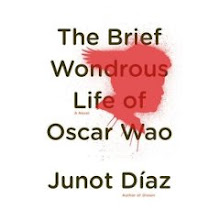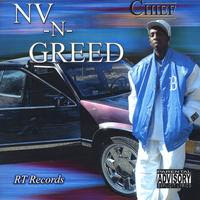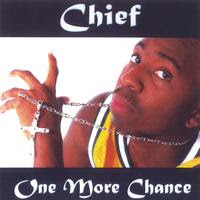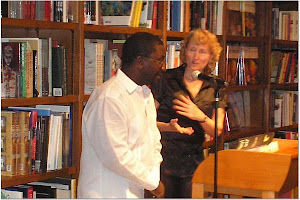They say sex is a vice too. Some of you may have seen this on AOL.
Texas Slaps 'Pole Tax' on Strip Clubs
By DAVID KOENIG,
AP
Posted: 2007-12-21 20:01:24
Filed Under: Nation News
DALLAS (Dec. 21) - Texas, where strip clubs have given rise to Anna Nicole Smith and many other less-generously endowed performers, is about to make it more expensive to watch a little bump and grind.In what some have dubbed the "pole tax," the Lone Star State will require its 150 or so strip clubs to collect a $5-per-customer levy, with most of the proceeds going to help rape victims. The tax goes into effect on New Year's Day.
Club owners and some of their customers say the money is going to a noble cause, but they argue that the tax infringes on their First Amendment right to freedom of expression, that it will drive some bars out of business and that it unfairly links their industry to sex crimes.
"We'll be fine. I've already stopped advertising, and we're raising our cover charges. But this is going to kill some of the smaller clubs," said Dawn Rizos, who runs The Lodge, a Hemingway-inspired place that has exotic animal heads on the walls and is packed after Dallas Cowboys games at nearby Texas Stadium.
The strip clubs are suing to block the tax, which state officials estimate will raise more than $40 million a year, based on liquor sales figures. If accurate, the estimate suggests at least 8 million people a year go to Texas strip clubs to get a lap dance or watch women pole-dance in a G-string . . . continued on AOL.
_________________________________________
Preston L. Allen responds to article
The Vice for Nice Scheme
Tax, tax, tax, and blah, blah, blah. Go read the rest of the article on AOL, if you care to.
Now here's why I put the article on this blog. It got me to thinking about the strange bedfellows made when vice and government unite (through the guise of taxes) to make bad situations nice.
(First, let me get this out of the way: yes, it is a nice thing for a state to set aside money to help its rape victims. I'm all for it. Rape is bad. Helping rape victims is nice.)
Now, back to my point. I have noticed that a state (say Florida, for example) will get voter support for the initial approval/creation of its lottery by loudly advertising how a portion of the revenues will go to help "education" so that in the voter's mind it comes out as an either/or proposition (which it is not, and any high school logic teacher can point out the either/or fallacy to you)--the either/or proposition being in some voters's minds: either I support a creation of a state lottery or I don't support education. In other words, if I don't support vice, then I don't support nice. Hmmm.
Fine, so we count the votes and we get a state lottery. What's so bad about that? It may be a vice, but at least the money is going to education--which is nice.
Well, the next problem, in some states, (say Florida, for example) is that the money goes to help education but not in the way that the voters thought it was going to go to help education. What do I mean?
Well, when we vote for a lottery because our state promised, let's say for example, $100 million dollars annually (or $200 million, or even one billion dollars)--we think, gee, what a nice deal. Really nice. Really, really nice. Now our state education budget is going to get an additional $100 million dollars (or $200 million, or a billion). Wow, we can set aside money for more state scholarships, computer upgrades, teacher salaries and training, sports equipment. Nope. Wrong answer. That is not the case at all.
What the careful wording in the very loud ad campaign usually means is that the $100 million collected from the lottery revenue will replace $100 million that would have been raised by other means. In other words, your meager state education budget remains exactly the same--you just get a portion of the money from a different source, i.e., the lottery.
Oh. Well, that's not so nice. We get all the vice (with its attendant problems), but almost none of the nice.
(Now, granted, this is not true in all states. I am told that Georgia, for example, a relatively small state with a relatively modest lottery (which rarely hits the $20 million dollar mark), has used its lottery revenues in such a way that all Georgia high school students who want to can go to a state university tuition-free. [[I am going to check on this to make sure that this is true--if anyone out there in Georgia-land can verify this information for me, please do so--and if it is indeed true, Georgia legislators, God Bless You for being good stewards of your children's futures. Florida, not so far behind, has the Bright Futures Program, which will pay state tuition and books, but the student has to have a certain GPA and/or a certain SAT score.]])
The worst part of this vice for nice scheme, however, is something I haven't mentioned yet. It is something that makes the entire undertaking a bit . . . sinister--even if you live in a Good Legislator Zone like Georgia: the state now owes the existence of its nice to its vice. This is quite a dilemma, no?
On the one hand, the state claims to support programs to aid and/or cure people with this terrible vice; on the other hand, the state depends on the vice itself to fund its nice.
Let's get away from gambling and state lotteries for a moment and go back to the Texas strip club example.
Let's say it works. Let's say Texas raises so much revenue from the $5 per head "pole tax" on lap-dance-hungry Texans that it is able to provide adequate medical treatment, counseling, and rehabilitation for all state rape victims (and hopefully it branches out and provides similar services to spousally-abused Texas women and their children).
But this nice (ness) comes with a price, no? If the vice in question (the strip club industry) falls on hard times, then the money for Texas rape victims becomes uncertain. Might the state of Texas at some point not be encouraged to provide assistance to struggling . . . strip clubs . . . so that through their prosperity the cash needed to aid rape victims continues to flow? On behalf of the strip clubs, Texas legislators might be compelled to wink at certain local zoning laws, to provide the clubs tax breaks, or to grant the clubs permission to include previously illegal stage acts so as to attract a larger, more profitable audience.
With state gambling, where the "nice" in question happens to be our children, the stakes are even higher. What will our state legislators be willing to grant so that our vice (our state lotteries) prosper and thereby continue to fund our children's educations?
In other words, if the state lottery isn't making as much money as it used to because people are wising up and learning to beat their addiction--then that means the state education budget is at risk. Our children's education is at risk, oh my.
In this case, does the state improve the lottery so that it becomes even more attractive to those gamblers struggling to beat their addiction? Hmmm. That's not nice.
Does the state improve its advertising campaign (more commercials, more billboards) to get back those gamblers who have beaten their addiction and to attract new gamblers (kids who just turned 18)? Hmmm. That's not nice.
Does the state improve the games themselves so that they are more compelling (they promise bigger payoffs) but stingier (they do give bigger payoffs, but less often and to fewer people, and thus earn the state more money--for the children)? That is not nice at all.
It's not nice? Who are you kidding? Look around you. These things are already happening. Check out the latest scratch off games at the convenience store. They can cost as much as $20 per play, and what do you win? Are your odds any better than playing the 1-dollar game? Turn the card over and read the odds. But we need money for education. Hahahaha. Yeah, right.
The state has learned from the casinos, who make no pretense at being the answer to the funding of your children's education. I have noticed that over the years at a particular Indian casino here in Florida that as it prospered, the games, despite what they told us, began to pay off less and less. Understand what I am saying: the games became more attractive, more addictive, but less profitable.
Take the diamond game, for example. You South Florida gambers know what game I'm talking about. The diamond game looks like the old build-your-own lotto machine that so many of us were hooked on before we got help at GA: four screens; you can pick six numbers per screen; payoffs are good if you get first2, first3, first4--and you really make a mint if you hit first5, which is a jackpot, or first6, which is a coverall; you can play any amount from a quarter to 10 dollars per screen. If you play the game long enough, you will eventually hit a coverall for a quarter and earn $5,000. The problem is that you probably spent, over time, $6,000 to get it.
Oh, well. When you're hooked, you're hooked. You used to have to stand in line for hours some time to get a seat--even though there were hundreds of these machines in the casino. It was the most popular game in the place.
But today not so many people are playing that old game. Most of them are playing the new diamond game--which looks just like the old build-your-own lotto game in most respects and is played the same way and according to the same principles--first2 is good, first3 is even better and so on.
The difference is that the old lotto game had only numbers, but the new diamond lotto game has a bunch of wild cards in it: the diamonds. It is vey exciting!
(Note: I am going to use a lot of exclamation points because this game was my addiction before I got help and it still makes my heart beat fast just to remember it!)
Believe me when I say that this game is ten times more exciting than the old vesion, which has no diamonds. Believe me when I say that this game, despite the diamond wild cards and the free spins and the hidden cash prizes, pays off nothing compared to the old game.
For example, first2 in the old game for a dollar paid $16. First2 in the new diamond game for a dollar pays one dollar--all you get is your stinking money back. First3 in the old game for a dollar paid $60; first3 in the new diamond game pays $5.
But why are so many gamblers standing in line to play the new game and the seats of the old game are mostly empty? Because with the addition of the diamonds bouncing around on that screen, the game is more exciting. Let me repeat that: the game does not pay more than the old one, but it is more exciting.
Talk to the lotto machine addicts and they each will tell you stories about the 10-thousand, 20-thousand, 30-thousand, even 100-thousand dollar payoffs (plural) they hit on that old machine--compared to the exciting but meager 1-thousand, 2-thousand, sometimes 5-thousand dollar hits they make on the new diamond machines, which they, against all logic, continue to prefer.
Casinos know your vice. They know that to get you to play, they do not have to give you big payoffs--they just have to promise them in big way. They do not have to provide you with profitable games, they have to provide you with stimulating games. Year after year, they devise games that will hook you, not pay you. And they are blatant about it because they know that you are addicted to the vice and you will not boycott their establishment no matter how shabbily they treat you.
But that's okay, because casinos are in it for profit. They are not your state. They are not the caretakers of your rape victims. They are not the caretakers of your children's educations. Casinos, may be manipulative, but at least they are honest about their intentions.Now when your state, in the interest of your children's education, starts creating scratch off games that cost $20 but pay off at about the same rate as the $1 game, you had better start asking why.
The answer, by the way, is so that you will feel good (stimulated, excited) while you pay more and earn less.
And they know that you will not boycott the state lottery no matter how shabbily they treat you because you want your children to have the best education possible? Crap. They know that you will not boycott because you cannot. You are addicted to the vice. It is a vice. That's what vices do--they addict.
So any time the state needs more revenue (for the children, hahahahaha), they will do just what the casinos do--squeeze the vice. Do you feel it around your neck?
That's why it's called a vice, and it is not nice that our states are involved in it.



